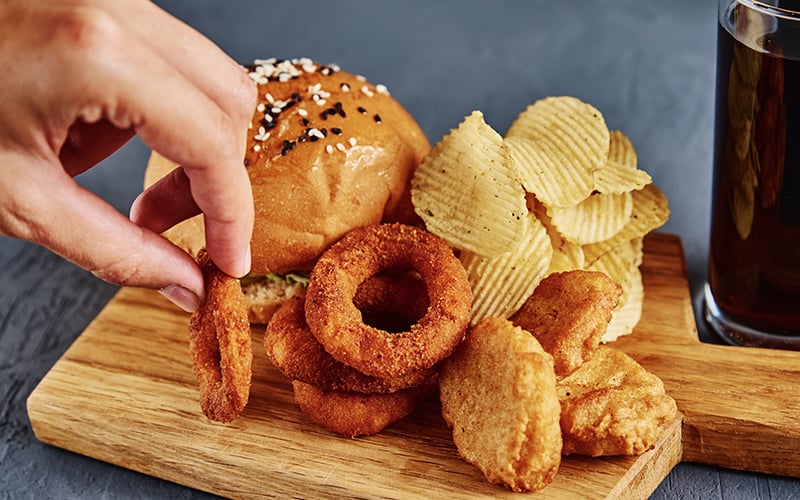
It’s well established that junk and processed foods have an impact on physical health, leading to conditions such as obesity, cardiovascular disease, and high blood pressure. But what about mental health?
Recent US research links consumption of this type of food to an increased risk of depression in women.
Published in the journal “Jama Network Open”, the research, conducted by a team from Massachusetts General Hospital and Harvard Medical School, examined the dietary habits and mental health of over 31,000 women aged between 42 and 62, and not suffering from depression at the start of the study, from 2003 to 2017.
The researchers concluded that women who consumed nine or more servings of ultra-processed foods (UPFs) a day had a 49% greater risk of depression than those who ate under four servings a day.
UPFs include ready-made products such as prepackaged soups, sauces, frozen pizzas, ready-to-eat meals, sweet and savoury snacks, and soft drinks. Participants who reduced their consumption of ultra-processed foods by at least three servings a day had a lower risk of depression than those whose diets remained unchanged.
“There is also a link between UPFs and disruption of the gut microbiome,” said co-author Dr Andrew T Chan from Harvard Medical School. “This is an important potential mechanism linking UPFs to depression since there is emerging evidence that microbes in the gut affect mood through their role in metabolising and producing proteins that have activity in the brain.”
The authors single out artificial sweeteners, the consumption of which is thought to increase the risk of depression. In 2014, a study already suggested that consumption of sweetened beverages, particularly diet drinks, was associated with an increased risk of depression in adults.
However, it remains difficult to establish a direct causal link between depression and junk food consumption.
“If sweet beverages and ultra-processed foods offer an acute, if fleeting, ‘comfort’, it is also plausible that burgeoning depression leads to a greater reliance on such foods,” noted Dr David Katz, a specialist in preventive medicine and lifestyle who did not participate in the study.
In other words, “depression causes increased intake of UPFs, rather than the other way around”, and that depression and a higher intake of junk and “comfort” foods “feed on each other”.
Chan concluded: “The strength of our study is that we were able to assess diet several years before the onset of depression. This minimises the likelihood that our findings are simply due to individuals with depression being more likely to choose ultra-processed foods.”


